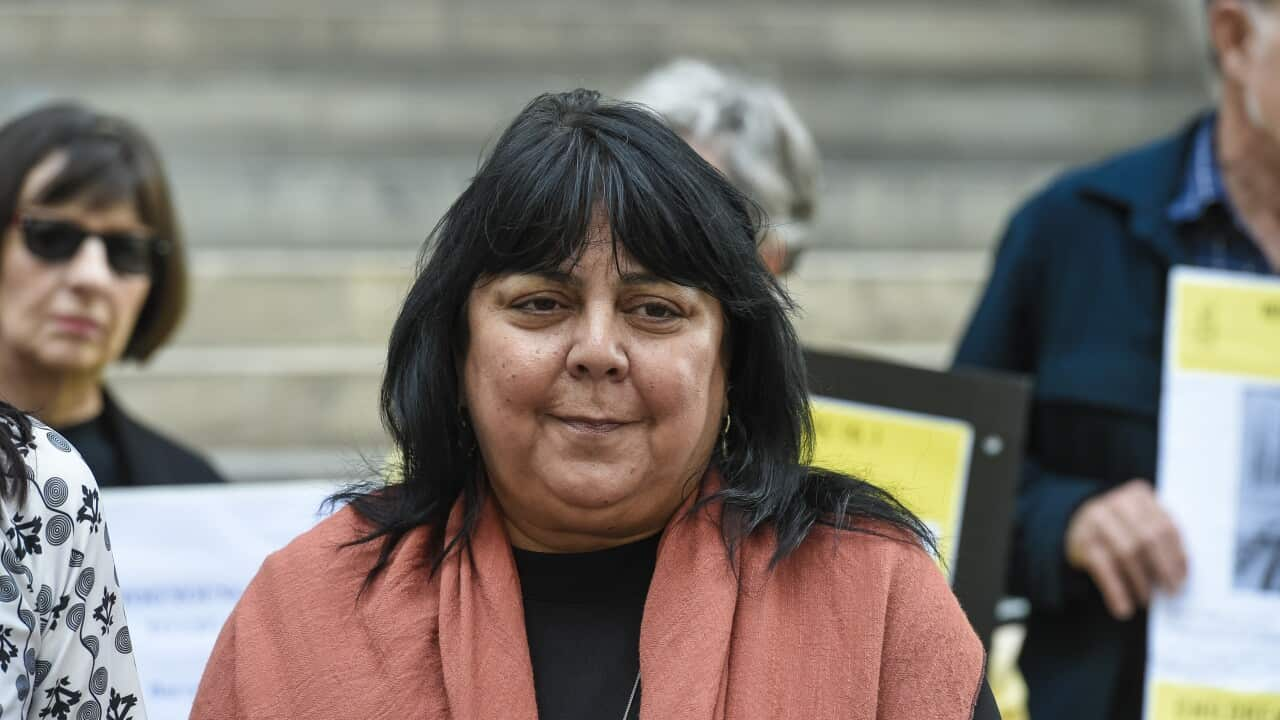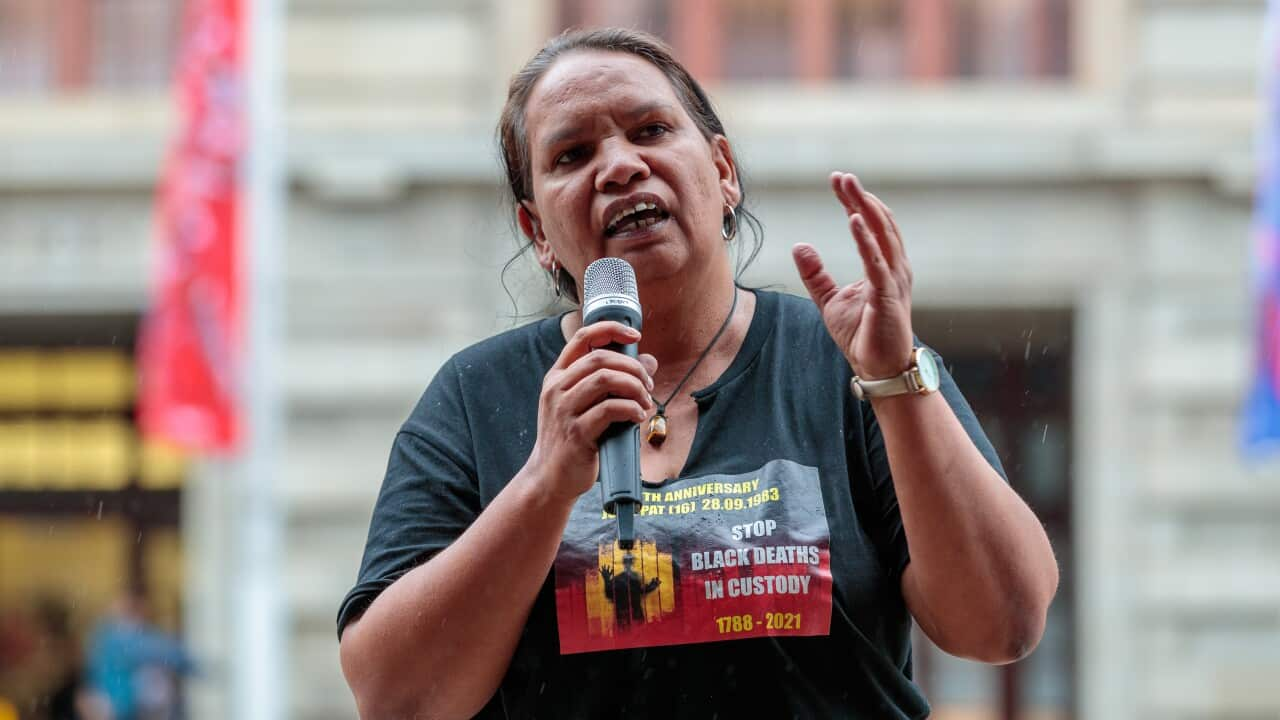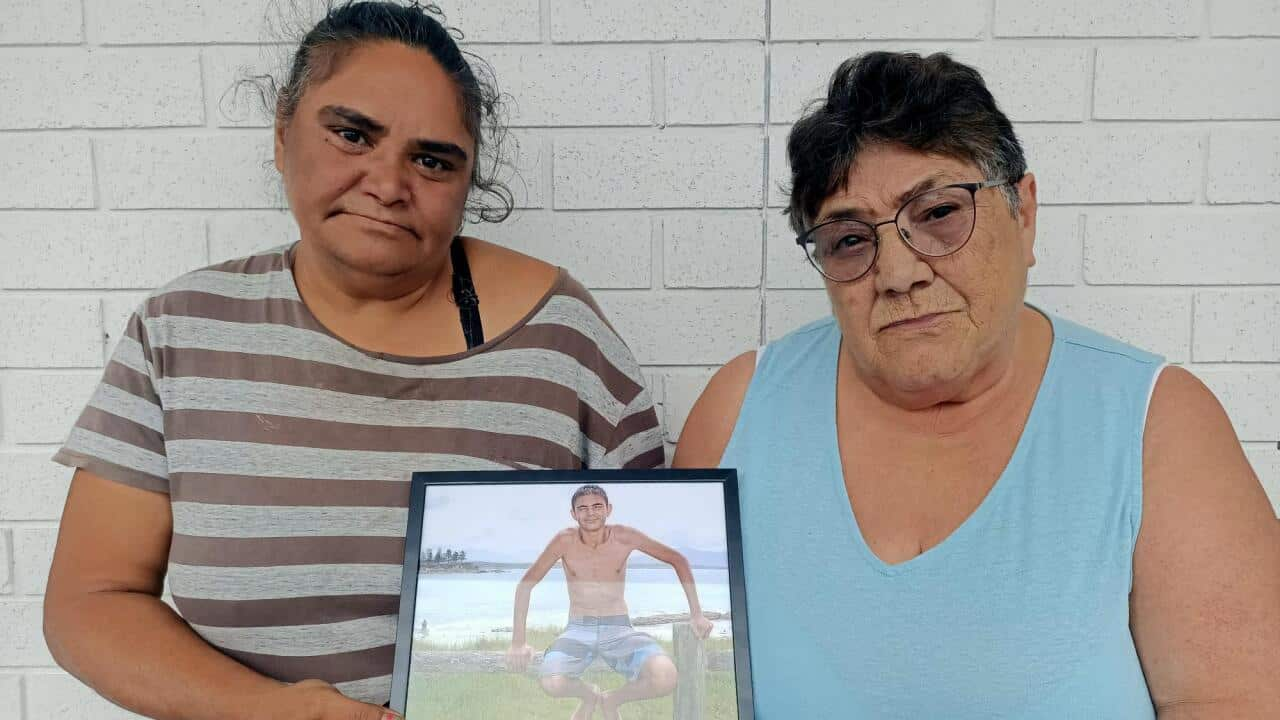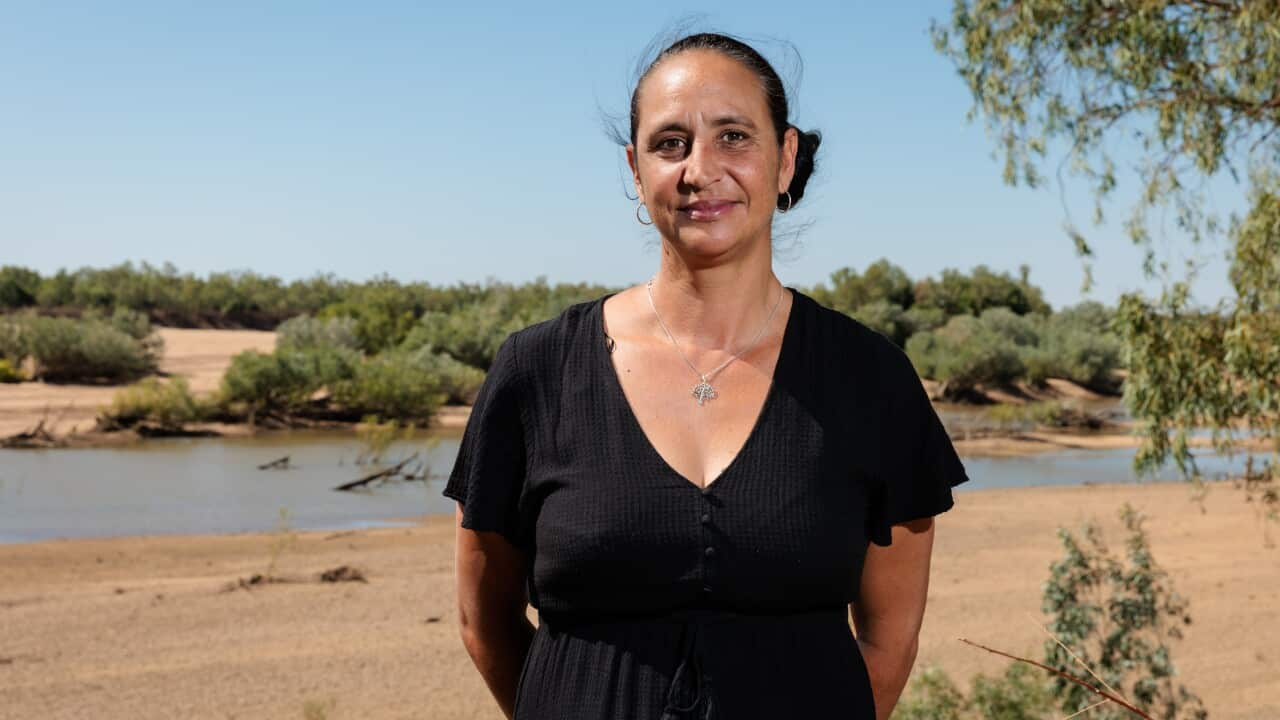For a lot of blackfellas, we have experienced trauma in one way or another.
From the ongoing impacts of colonisation, the Stolen Generations, seperation from our culture and our identities to racism, it is difficult to escape the trauma that is ingrained in almost every aspect of our lives.
This trauma moves through generations and can be really hard to deal with.
This experience is referred to as intergenerational trauma.
What is intergenerational trauma?
Intergenerational trauma occurs when an original traumatic experience is passed on from generation to generation.
Yiman and Bundjalung woman Carlie Atkinson is passionate about trauma recovery and healing, co-founding We Al-li. We Al-li integrates Aboriginal cultural processes with therapeutic techniques to facilitate trauma recovery.
"Intergenerational trauma is the transmission of trauma experiences and their psychological and body-based effects across generations through families," Ms Atkinson told NITV.
Carlie says that intergenerational trauma can look different depending on the person and their experiences.
"It's the profound impact of historical injustices, such as colonisation and the attempted cultural genocide, which continue to affect our communities today.
"This trauma plays out in various forms, perpetuating cycles of suffering, substance abuse, mental health disorders, and disrupted family structures," she said.
Brooke Dillon is a Palawa woman from lutruwita. Brooke works in the largest medium security prison in the country as the Cultural Advisor. She says that her role involves implementing culturally safe programs and ensuring that mob are given the tools they need to heal while incarcerated.
Brooke says that intergenerational trauma is like carrying a heavy suitcase you can't put down despite doing everything you can to put it down.
"Some people will tell you how proud they are of you for carrying it so well. Some will deny there is a suitcase at all. Some will tell you it's not yours to carry without understanding it's not a choice," Ms Dillon explained.
What are the impacts of intergenerational trauma?
Carlie says that the impacts of intergenerational trauma are far-reaching.
She says intergenerational trauma can trap Aboriginal and Torres Strait Islander peoples in cycles of disadvantage and suffering.
"I've witnessed how intergenerational trauma manifests in cycles of violence, poverty and social marginalisation within our communities.
"It can also contribute to high rates of mental health disorders, substance abuse, incarceration and family breakdowns," she said.
Intergenerational trauma affects mob in a number of ways. It can shape social, economic and cultural outcomes.
"The ongoing disparities in access to resources, healthcare, and education exacerbate intergenerational trauma, and can perpetuate these cycles of trauma and adversity," Ms Atkinson said.
Carlie also identifies how intergenerational trauma can affect connection to culture.
"It can sometimes erode our cultural identity and connection to Country, leading to a sense of dislocation and loss," she said.
Working in a prison, Brooke says that she sees the impacts of intergenerational trauma everyday.
"In society it presents itself as homelessness, over representation of my community in prison, it's the gap between life expectancy.
"Emotionally it's anger, disassociation, racism, fear of authority, oppression, the inability to connect with others, trust issues," she said.
Where does intergenerational trauma stem from?
Ms Atkinson says that intergenerational trauma is caused by the historical and ongoing effects of colonisation.
"It is cumulative, compounded trauma intentionally inflicted by the colony.
"Intergenerational trauma stems from historical injustices and systemic oppression inflicted upon our peoples, including colonisation, forced removals, and the attempted cultural erasure," she told NITV.
Like Carlie, Brooke also identifies colonisation as the root of intergenerational trauma.
"Intergenerational trauma stems from the brutal conditions our old people lived through, it stems from fear of being separated from our Country and community, it stems from the colonisation and oppression of our people and then the denial of that," she said.
Validating intergenerational trauma
Carlie says that validating intergenerational trauma is essential for acknowledging both the incredible strength but also the fight of Aboriginal and Torres Strait Islander peoples.
She also says that recognising intergenerational trauma can help in dismantling harmful stereotypes against First Nations people.
"By honouring our people's experiences and stories, we can begin to address the root causes of trauma and work towards healing - something that this Nation needs - a truth telling.
"Then we can start to move through the layers of loss and grief and strengthen our spiritual and cultural identities and reclaim our sacred selves," she said.
For Brooke, validating and acknowledging intergenerational trauma can lead to healing.
This is because without validation and acknowledgement of something, it is hard to address it.
"The ongoing denial... the lack of validation around why we feel how we feel and our disconnection to community, to our culture and to our language has caused more trauma.
"Our history has been denied for so long, When we validate and recognise intergenerational trauma, we can heal.
"When we label and validate something, all of a sudden it goes from an individual to a collective. If something has a label, it means others must have experienced it," she said.
What does healing look like?
Carlie says that connecting to culture and self-determination can be a way to heal.
"Healing for our peoples involves reclaiming cultural practices, practices that we know actually change the neurobiology of our brains and can help us heal from trauma.
"Healing involves reconnecting with Country, honouring ancestral knowledge, and embracing Indigenous cultural practices.
"It involves decolonising ourselves and the structures that hold us down and it requires truth telling from a National perspective.
"This stuff works, it also deepens our sense of community and therefore connection and belonging," she told NITV.
Brooke says that there isn't a formula when it comes to healing and it can look like many different things.
"Healing is truth-telling, validating, acknowledging, two-way learning, listening and self-determination," she said.









